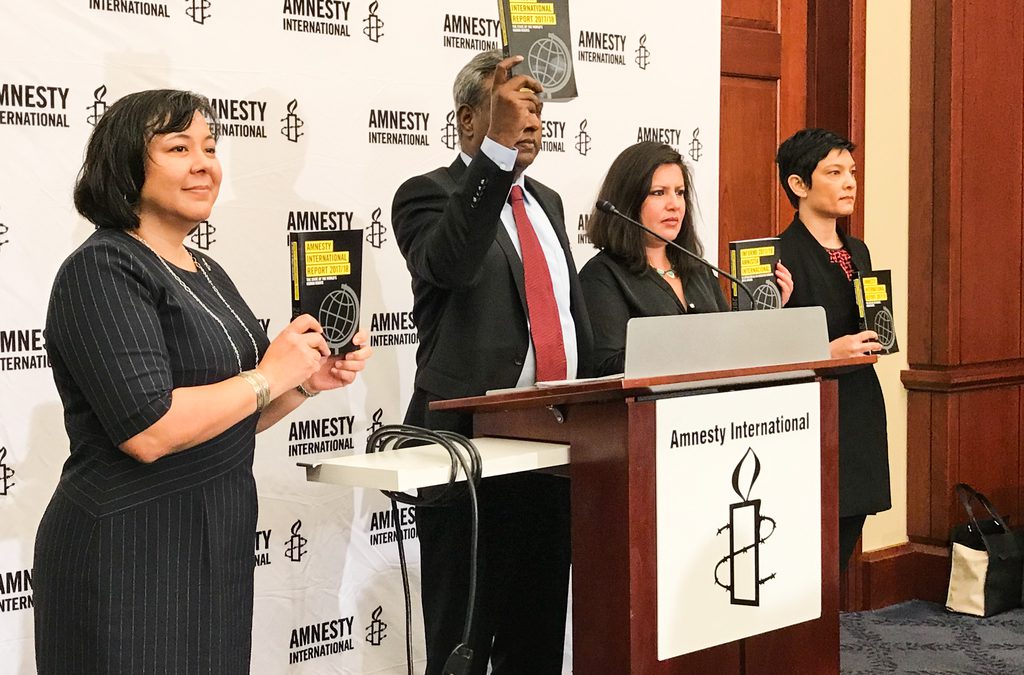WASHINGTON – World leaders trampled over human rights in 2017, suppressing people’s right to protest in countries such as France and failing to protect women’s rights in countries such as the U.S., Russia and Poland, according to Amnesty International’s annual report on the status of global human rights released Thursday.
In 2017, about 690,000 Rohingya fled their homes, 470,000 Syrians lived under siege and 500,000 Yemeni contracted cholera due to lack of clean water and access to health facilities, the report said.
“This is a direct consequence of the paralysis that has plagued the international community in 2017,” said Tirana Hassan, director of the Crisis Response Programme for Amnesty International, at a press conference Wednesday previewing the study’s release. “When it comes to conflict, crisis and mass atrocities, we have seen zero moral or legal leadership coming from the international community.”
Amnesty International documented violations of human rights in 159 countries and pointed to President Donald Trump and Russian President Vladimir Putin as responsible for exacerbating world crises with their rhetoric. “The specters of hatred and fear now loom large in world affairs, and we have few governments standing up for human rights in these disturbing times,” said Salil Shetty, the organization’s secretary general. “Instead, leaders such as (Egyptian President Abdel Fattah) al-Sisi, (Philippines President Rodrigo) Duterte, (Venezuela’s Nicolas) Maduro, Putin, Trump and Xi (Jinping of China) are callously undermining the rights of millions.”
Trump’s statements and tweets – implying he endorses torture, calling news reports fake and equivocating on the role of white supremacists in the violent rally in Charlottesville, Virginia – has had a ripple effect in other countries. “You can imagine how much leverage [Trump’s actions] gives to leaders of Egypt or Hungary or places where they are simply waiting to crush dissent and crush any kind of freedom of expression,” Shetty said.
Trump’s executive orders suspended travel to the U.S. from various Muslim countries. His administration overturned university policies that investigated sexual violence as gender discrimination and attempted to cut off funding for Planned Parenthood.
“It’s no surprise to anyone that the issues of race and discrimination are still very front and center in our political sphere here in the United States,” said Margaret Huang, Amnesty International USA’s executive director. “There’s a number of ways in which race plays out and very clear human rights violations here in the U.S., and we continue to see those as a priority for our work.”
Beyond the U.S., the report notes that in Poland, four applicants claimed they were denied asylum that put them at risk of refoulement, forcible return to a country where they could be subjected to persecution. In Egypt, refugees faced arrests, detention and deportation for exiting or entering the country irregularly.
“Donald Trump’s policies may have marked a new era of human rights regression but they are not unique,” said Shetty. “If you look cross from Australia to Hungary, leaders have long treated refugees and migrants as problems to be deflected, not as human beings with rights that deserve our compassion.”


